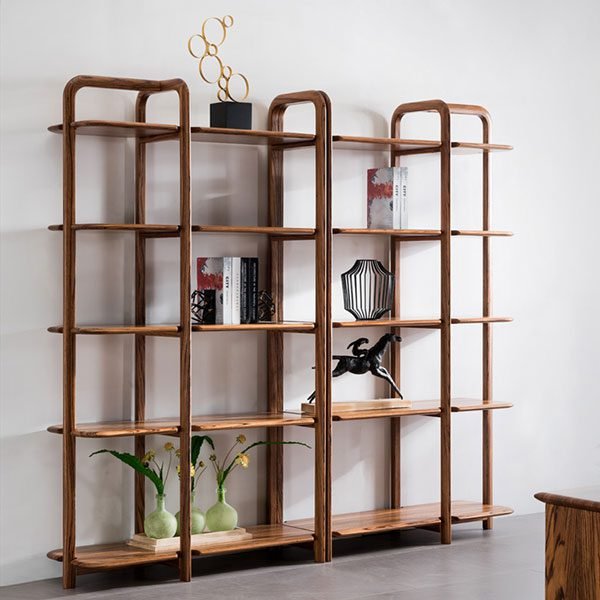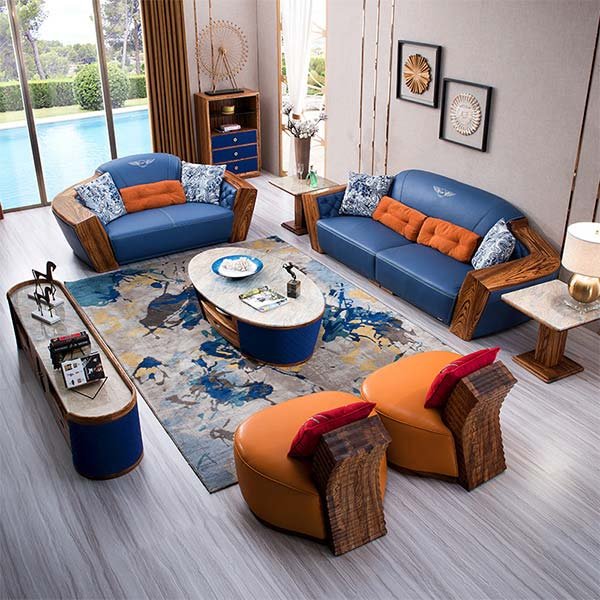“Flexibility and Style, without the Commitment”
Cost-effectiveness of renting furniture
Renting furniture has become a popular option for many people, especially those who are constantly on the move or have temporary living arrangements. However, one question that often arises is whether renting furniture is worth it in terms of cost-effectiveness. In this article, we will explore the various factors that contribute to the cost-effectiveness of renting furniture.
One of the main advantages of renting furniture is the upfront cost savings. When you rent furniture, you don’t have to make a large initial investment like you would when buying new furniture. This can be particularly beneficial for individuals who are on a tight budget or don’t want to tie up their money in furniture.
Additionally, renting furniture allows for flexibility. If you are someone who frequently moves or likes to change your living space, renting furniture gives you the freedom to do so without the hassle of selling or moving bulky furniture. This can save you both time and money in the long run.
Another cost-saving aspect of renting furniture is the maintenance and repair. When you rent furniture, the responsibility of maintenance and repair falls on the rental company. This means that if any issues arise with the furniture, you won’t have to spend extra money on fixing or replacing it. This can be a significant advantage, especially if you are not handy or don’t have the time to deal with furniture repairs.
Furthermore, renting furniture can also be a cost-effective option for short-term needs. If you are only planning to stay in a particular location for a few months or a year, it may not make sense to invest in buying furniture. Renting allows you to have the necessary furniture for your temporary living situation without the long-term commitment.
However, it’s important to consider the potential downsides of renting furniture as well. One of the main disadvantages is that you don’t own the furniture. This means that you won’t be able to customize or personalize your living space to the same extent as you would if you owned the furniture. Additionally, if you decide to extend your rental period, the monthly costs can add up over time and may end up being more expensive than buying furniture outright.
In conclusion, the cost-effectiveness of renting furniture depends on individual circumstances and preferences. For those who value flexibility, upfront cost savings, and minimal maintenance responsibilities, renting furniture can be a cost-effective option. However, if you prefer to have complete ownership and control over your furniture or plan to stay in one place for an extended period, buying furniture may be a more suitable choice. Ultimately, it’s essential to weigh the pros and cons and consider your specific needs before making a decision.
Flexibility and convenience of renting furniture
Renting furniture has become an increasingly popular option for many individuals and families. The flexibility and convenience that comes with renting furniture make it a viable choice for those who are constantly on the move or simply prefer not to commit to long-term furniture purchases. In this article, we will explore the various benefits of renting furniture and discuss whether it is truly worth it.
One of the key advantages of renting furniture is the flexibility it offers. When you rent furniture, you have the freedom to change your style or upgrade your pieces whenever you desire. This is particularly beneficial for individuals who enjoy keeping up with the latest trends or frequently move to different locations. With renting, you can easily swap out your furniture without the hassle of selling or disposing of your old pieces.
Additionally, renting furniture provides a level of convenience that is unmatched by traditional furniture purchases. When you rent furniture, it is delivered directly to your doorstep, eliminating the need for you to go through the process of shopping, transporting, and assembling furniture yourself. This is especially advantageous for those who lead busy lives or simply prefer to have someone else handle the logistics.
Furthermore, renting furniture can be a cost-effective option for many individuals. Instead of making a large upfront investment in purchasing furniture, renting allows you to pay a monthly fee for the duration of your rental agreement. This can be particularly beneficial for individuals who are on a tight budget or do not have the financial means to purchase high-quality furniture outright. Renting also eliminates the need for maintenance and repairs, as these responsibilities typically fall on the rental company.
In addition to the financial benefits, renting furniture can also be environmentally friendly. By renting furniture, you are essentially participating in a circular economy, where items are reused and recycled instead of being discarded. This helps to reduce waste and minimize the environmental impact associated with the production and disposal of furniture.
However, it is important to consider the potential drawbacks of renting furniture. One of the main concerns is the lack of ownership. When you rent furniture, you do not have the same sense of ownership and control over your pieces as you would if you had purchased them. This can be a disadvantage for individuals who value the sentimental or long-term investment aspect of owning furniture.
Another consideration is the potential for additional costs. While renting furniture may initially seem more affordable, the cumulative cost of monthly rental fees over an extended period of time can add up. It is important to carefully evaluate your budget and compare the long-term costs of renting versus purchasing furniture to determine which option is truly more cost-effective for you.
In conclusion, the flexibility and convenience of renting furniture make it an attractive option for many individuals. The ability to easily change styles, the convenience of delivery and assembly, and the cost-effectiveness are all compelling reasons to consider renting furniture. However, it is important to weigh the potential drawbacks, such as the lack of ownership and potential additional costs, before making a decision. Ultimately, whether renting furniture is worth it or not depends on your personal preferences, lifestyle, and financial situation.
Comparison between renting and buying furniture
Comparison between renting and buying furniture
When it comes to furnishing your home, one of the biggest decisions you’ll have to make is whether to rent or buy furniture. Both options have their pros and cons, and it’s important to carefully consider your needs and budget before making a decision. In this article, we will compare renting and buying furniture to help you determine which option is worth it for you.
One of the main advantages of renting furniture is the flexibility it offers. Renting allows you to easily change your furniture as your needs and tastes evolve. If you’re someone who likes to frequently update your home decor or if you’re living in a temporary space, renting furniture can be a great option. Additionally, renting furniture can be a cost-effective solution if you’re on a tight budget or if you’re unsure about your long-term living arrangements.
On the other hand, buying furniture provides a sense of ownership and allows you to personalize your space to your liking. When you buy furniture, you have the freedom to choose pieces that reflect your style and preferences. Moreover, buying furniture can be a good investment in the long run, as you won’t have to worry about monthly rental payments and can enjoy your furniture for years to come.
Another factor to consider when comparing renting and buying furniture is the cost. Renting furniture typically involves monthly payments, which can add up over time. However, renting may be more affordable in the short term, as you won’t have to make a large upfront payment. Buying furniture, on the other hand, requires a larger initial investment, but you won’t have to worry about ongoing rental fees. It’s important to carefully evaluate your budget and financial situation before deciding which option is more cost-effective for you.
In terms of convenience, renting furniture can be a hassle-free option. Rental companies often take care of delivery, assembly, and maintenance, saving you time and effort. If you’re someone who values convenience and doesn’t want to deal with the logistics of buying and moving furniture, renting may be the way to go. However, if you enjoy the process of shopping for furniture and don’t mind taking care of the logistics yourself, buying furniture can be a rewarding experience.
Lastly, it’s important to consider the quality of the furniture. Rental furniture is often designed to withstand frequent moves and may not be as durable as furniture you would buy. If you have children or pets, buying furniture may be a better option, as you can choose pieces that are more resistant to wear and tear. However, if you’re living in a temporary space or don’t want to commit to long-term furniture, renting can still provide you with decent quality pieces.
In conclusion, the decision of whether renting or buying furniture is worth it depends on your individual needs and circumstances. Renting offers flexibility and affordability in the short term, while buying provides ownership and personalization in the long run. Consider factors such as your budget, lifestyle, and preferences before making a decision. Ultimately, the choice is yours to make.
Заключение
Заключение: Стоит ли аренда мебели – это индивидуальное решение, зависящее от конкретных обстоятельств и потребностей человека. Аренда мебели может быть полезной в таких случаях, как временное проживание, студенческая жизнь или частые переезды. Она также может быть выгодной для тех, кто не хочет или не может вложиться в покупку новой мебели. Однако, в долгосрочной перспективе, покупка собственной мебели может быть более экономически выгодной. В конечном счете, решение о том, стоит ли арендовать мебель, должно быть основано на индивидуальных обстоятельствах и финансовых возможностях каждого человека.



